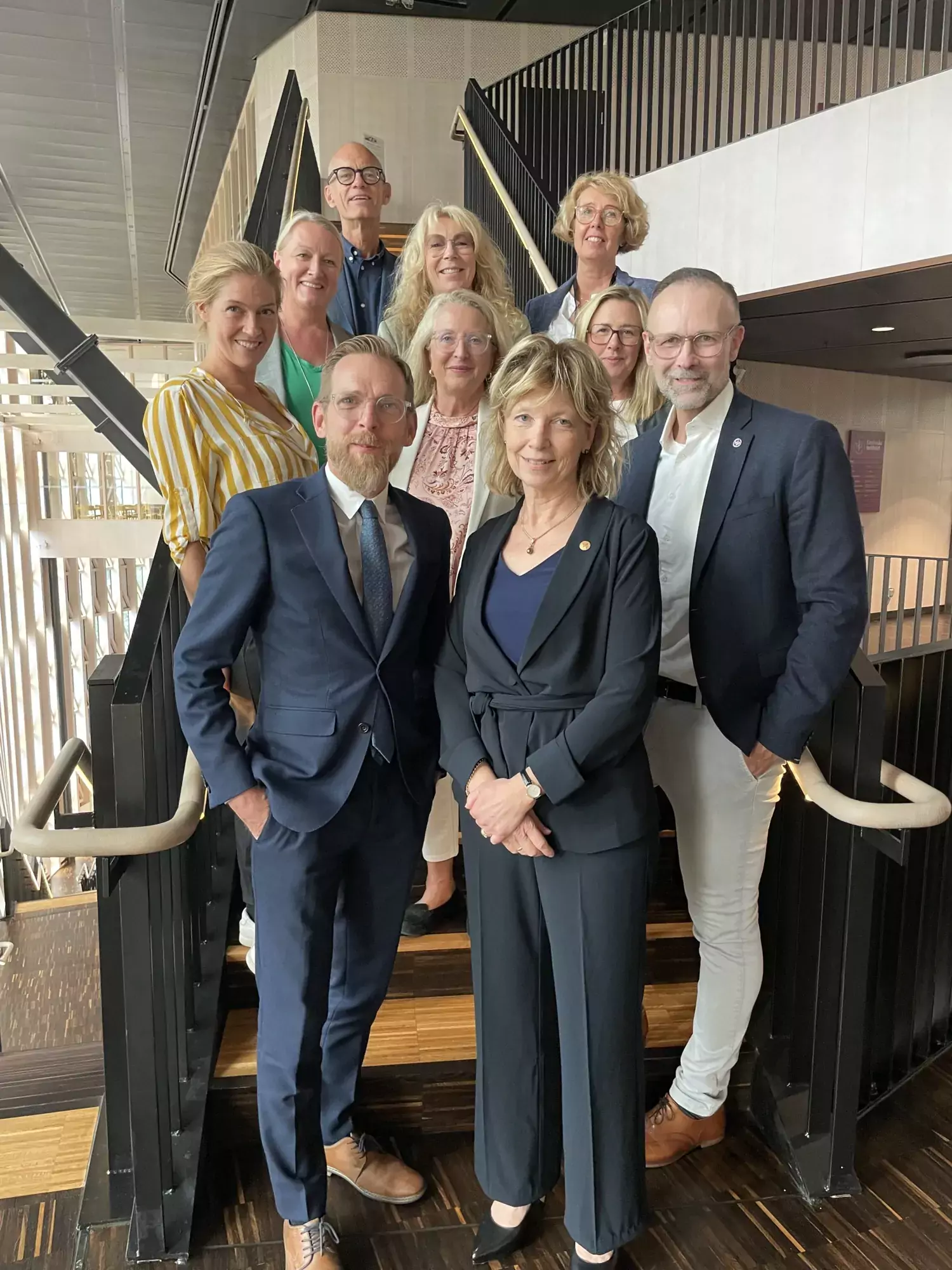Collaboration, surge capacity and financing are needed for the universities’ role in crisis preparedness

When the Minister for Minister for Social Affairs and Public Health Jakob Forssmed visited KI on Monday 28 August, he met, among others, the director of the Centre for Health Crises, Johan von Schreeb. During the meeting the Centre highlighted the need for national collaboration on the role of universities in crises, as well as a national ability (surge capacity), focused on people trained in handling health crises, to be ready when the crisis hit.
The Minister for Minister for Social Affairs and Public Health visited KI to meet with the university management and representatives from various parts of the organisation, including the director of the Centre for Health Crises, professor of global disaster medicine, Johan von Schreeb. During the meeting with the minister he stressed, among other things, that universities are an actor in society that should be utilised in both crisis preparedness and ongoing health crises.
– The development of the Centre for Health Crises has been going on during both the COVID-19 pandemic and Russia’s invasion of Ukraine. It is evident that universities have an important part to play, both when it comes to education, but also as a credible source of fact-based information. We saw this in the report that KI produced, Being better prepared for the next health crisis – lessons from KI during the COVID-19 pandemic. The Centre for Health Crises has initiated a collaboration project where we look at how we gather relevant skills and knowledge that exists at Swedish universities and make it available in a health crisis. One option is to create a national centre for health crises, as one unified point of collaboration between universities, government agencies, the government, and so on, which was something I mentioned to the minister, says Johan von Schreeb.
The importance of surge capacity – the ability to scale up – and that preparedness has a price
During the meeting he also emphasised the importance of surge capacity, the fact that there has to be the ability and scope within a system to scale up, when a crisis occurs. The greatest challenge is lack of qualified staff. There is a lack of a national pool of staff that can be brought into use in health crises. Having such a pool in the state could be an important component of surge capacity in health crises.
The meeting concluded with Johan von Schreeb once again underlining the importance of a national centre for health crises, which should gather expertise that can advise state authorities and government, as a part of Sweden’s Total defence (totalförsvaret). But long-term funding is needed, an investment in our common security, that ensures that there is a next generation of health crises experts.
